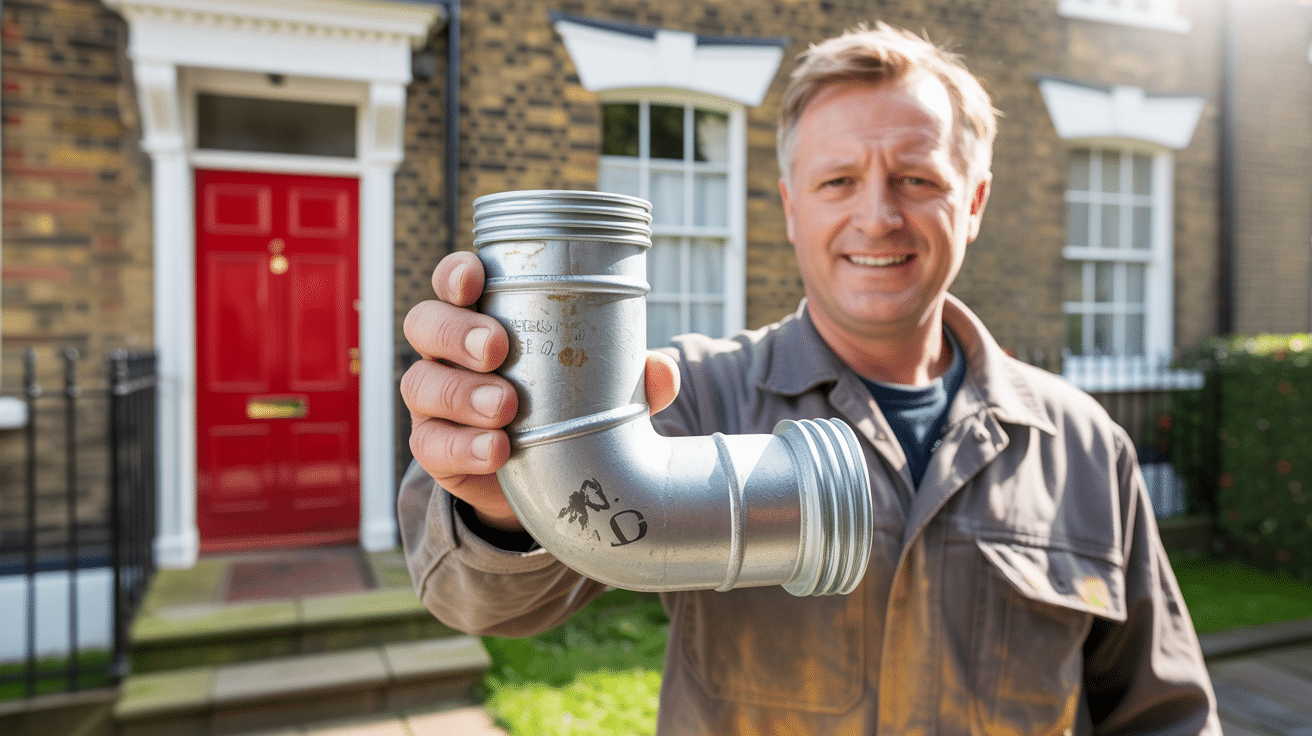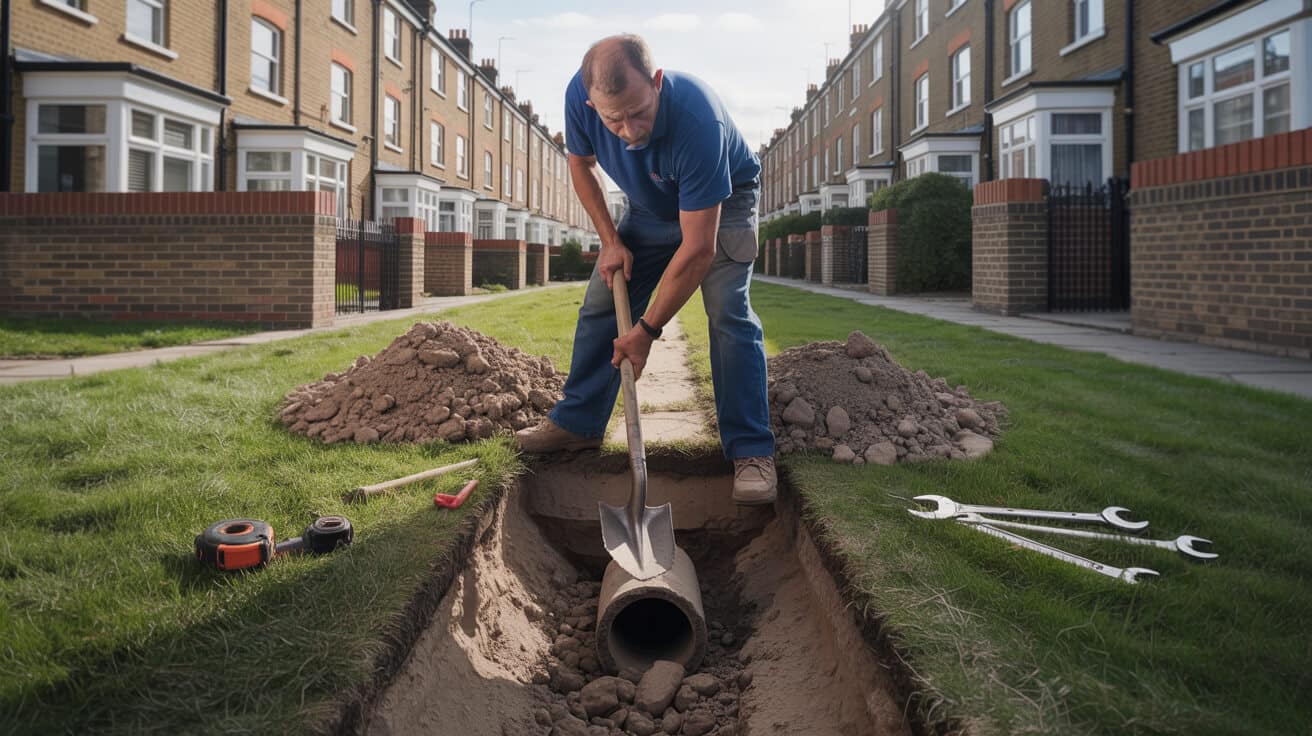 Free Boiler Grants Uk 2025 Who Qualifies and How to Apply
Free Boiler Grants Uk 2025 Who Qualifies and How to Apply

Who Actually Gains the Most From Free Boiler Grants in 2025—and Who Misses Out?
If you’re in charge of a home, block, or commercial property, government heating grants appear everywhere—yet the question nags: who really wins? In 2025, these schemes aren’t simply a box-ticking exercise for compliance or a way to shave a few pounds off an energy bill; they’re a lever for anyone who wants to lock in comfort, cost control, and future-proof their reputation as a responsible decision-maker. Every year, thousands of landlords, letting agents, and owners lose out—not because of eligibility, but because of paperwork inertia, deadline drift, or misunderstanding how ready these funds are for the taking.
Comfort, savings, and compliance are within reach—the only losers are those stuck in wait-and-see mode.
Modern grant programmes don’t just make heating upgrades affordable. They reward those who act early, organise their files, and connect with trusted, accredited engineers. Landlords and portfolio owners see tenant satisfaction and year-round retention improve, plus fewer out-of-hours “no heat” calls. Letting and managing agents move properties at higher rents with lower repair risk. Compliance becomes less of a moving target and more of a marketing asset: a new, A-rated boiler can mean an instant step up in your property’s EPC band, letting ability, and future sale price.
For local authorities or commercial owners, efficient heating isn’t just about expense control—it’s now a visible standard for staff and community wellbeing, especially as decarbonisation and grant accountability become core benchmarks for building management. The often-ignored upside? Being first over the paperwork finish line can mean a five-figure portfolio saving, hundreds off annual bills, and a compliance “no-worries” box ticked for years.
Are You Eligible? Most People Qualify—Here’s What Decides It

Most schemes in 2025 are engineered to reach wide—yet confusion about technicalities keeps far too many eligible properties sitting out. If you administer a residential flat, run a letting agency, control a local authority stock, or own commercial premises with old heating, there’s a strong chance you already qualify for support.
Key Eligibility Factors: What You Need to Know
- Property Type: Homeowners, private tenants (with landlord consent), landlords, portfolio managers, and commercial freeholders are nearly all in scope if the building is heated by a boiler and hasn’t had a freebie in the past round.
- Boiler Age and Efficiency: Focus is on boilers over eight years old, non-condensing, or tumbling into “fault-prone” territory.
- EPC Band: D, E, F, and G properties are the main focus—especially those flagged as “hard to heat” due to draughty construction or poor insulation ([epcregister.com](https://www.epcregister.com/)).
- Income/Means Testing: ECO4 hinges on council tax bands and benefit status, but LA Flex expands help to households with health needs, pensioners, or those experiencing fuel poverty even if they don’t tick the classic benefits box ([citizensadvice.org.uk](https://www.citizensadvice.org.uk/consumer/energy/energy-supply/get-help-paying-your-bills/boiler-grant-schemes/)).
A well-organised application rises or falls not because of eligibility, but on whether the right documents and landlord or portfolio permissions are submitted fast enough.
In 2024, more than one third of failed applications were lost to missing landlord sign-off or out-of-date EPCs—not ineligibility (*Source: Ofgem/GreenMatch*).
What’s the Real Financial Impact? Savings, Value, and Compliance in Numbers

Let’s move past the headline “free boiler” pitch and dig into the numbers. Modern condensing boilers, often installed under these schemes, routinely reduce annual energy costs by £300–£700, with some commercial and portfolio projects reporting five-figure savings across multiple properties (greenmatch.co.uk).
Grants Don’t Just Save Money—They Build Value
- Higher EPC Ratings: Upgrading is the fastest route from a “Letting at risk” D/E band to a lettable C or better.
- Tenant Attraction & Retention: Modern heating equals fewer complaints, higher satisfaction, and lower turnover costs.
- Market Standing: Owners and managers can point to their environmental compliance in tenders or marketing—fast becoming a default expectation in competitive rental and commercial segments.
- Avoidance of Fines: With MEES tightening, non-compliance fines (over £5,000 in some boroughs) loom for those without the right paperwork.
The grant process also delivers formal certification: Gas Safe, G3 unvented (if cylinder supplied), WRAS installation details. These documents, beyond satisfying insurers and building control, now play a growing part in closing property transactions, pricing insurance, and passing annual landlord or block audits.
Which Grant Scheme Fits You Best—And Can You Stack Savings?

There are three main doors to support in 2025. Select the right fit—and don’t rule out compound benefits if you fit more than one.
ECO4: The Backbone for Households and Landlords
Open to most households on means-tested benefits and many on low incomes under LA Flex, ECO4 still delivers the biggest volume for no- and low-cost upgrades. It particularly targets the “coldest, costliest” homes: D–G EPC, boilers over 8, and long-standing fuel poverty.
BUS (Boiler Upgrade Scheme): The Non-Gas Step Forward
BUS is aimed squarely at larger properties or commercial premises where future-proofing against gas bans or utility volatility is worth the up-front headache. Up to £7,500 is now available for a heat pump, ground-source solution, or solar water heater—meaning commercial or multi-unit assets can leapfrog compliance worries and trim utility outlays (wiser.draytoncontrols.co.uk).
LA Flex: The Grey-Area Champion
Not every household on a modest income gets a letter from the DWP. LA Flex expands local councils’ power to ease in “edge case” properties—think elderly tenants, health-critical buildings, or multi-family stock that miss strict ECO criteria but are clear candidates for urgent support.
Can You Stack Schemes?
In short: yes, savvy managers combine boiler upgrades with wall, loft or cavity insulation grants, and in some scenarios get approval for BUS alongside LA Flex or parallel insulation funding, especially on block and commercial projects. The trick: meticulous documentation and installer coordination.
The biggest wins go to the early movers who prep documents, harness local schemes, and use accredited engineers who know the system inside-out.
What’s the End-to-End Grant Process—And Where Do Most People Fall Down?

Thousands every quarter lose out not for lack of eligibility, but for falling into the same avoidable traps: paperwork chaos, missing consent, or underestimating how fast slots fill.
The Five Steps—And the Pitfalls at Each
Step 1: Select Your Installer
Don’t underestimate the importance of TrustMark, WRAS, G3 or Gas Safe credentials. Properties handled end-to-end by accredited teams face almost zero risk of non-compliance or late-stage drop-out. Many letting insurers and agents now require accredited paperwork for cover.
Step 2: Gather Evidence
Have your EPC, utility bills, benefit proof, and (for tenants) landlord’s written consent ready. Most delays—sometimes weeks—are due to waiting for “simple” documents that get left to the last minute.
Step 3: Survey Visit
Installers book a survey to inspect the property, heating, insulation and ventilation. Failure to grant access or missing insulation upgrades (especially for BUS) are frequently cited as reasons for delays or outright eligibility rejection (ofgem.gov.uk).
Step 4: Scheme Application and Approval
Here’s where your documentation discipline pays off. Process time runs from around 3–8 weeks, depending mainly on how fast you respond to document requests and follow-up questions. Delays risk rolling into the next funding window, with no guarantee you won’t be put back at square one.
Step 5: Installation, Demonstration, and Certification
The final handover means you get signed, multi-point documentation covering safety, compliance, and warranty. Any reputable installer walks you or your tenants through the controls, sets up smart scheduling, and answers post-instal questions without extra charges.
Where Most Go Wrong
- Old or missing paperwork: A bill from five months ago is a common disqualifier.
- Delay in getting landlord/owner permission: Letting agents can speed this up dramatically by starting on day one.
- Missed survey or no access: This bumps your application to the back of the queue.
- Unaccredited installers: Anything that cuts corners risks both financial and compliance loss.
Every missed document is a week lost; every late sign-off is a window closed.
How Does the Right Installer Change Your Experience?

A compliant, proactive installer (like Plumbers 4U) is not just a tradesperson—they’re your compliance quarterback, document-wrangler, and handover teacher. With the right team, your project avoids avoidable headaches, site re-visits, or funding misses. Accredited teams add value at every touchpoint: they spot insulation upgrades you may have missed, coordinate multi-property submissions for landlords, and bridge admin gaps before they become problem calls.
Plumbers 4U: The Process, Step-by-Step
- Free, No-Pressure Assessment: Pre-qualify your property and document pathway up-front, with no on-the-spot “decision anxiety.”
- Admin Hand-Holding: Our office team speaks “scheme paperwork” fluently and tracks everything from consent to certificate.
- Transparent Costing: Up-front clarity around contributions (if any), scheduling, and any extras; no fuzzy add-ons or hidden charges.
- Fully Certified Works: All work done to WRAS, Gas Safe and G3 codes; handover pack includes compliance, smart controls demo, and access to our lifetime aftercare team.
For portfolio landlords or block managers, we streamline “batch” surveys and applications, keep tenants in the loop, and ensure documentation for each property is separated and clean—no cross-property confusion.
What Are the Hidden Compliance and Market Advantages of Grant-Funded Upgrades?

Upgrading now, with full certification, moves from “box ticking” to a durable asset. The new boiler pays you back twice—on the bill and at exit. For landlords, a compliant, EPC-lifted property is instantly more marketable and future-legal (MEES tightening means the pain of missing the C band grows every year). Tenants stay longer—and tell others why.
Post-Instal Support and Upsides
- Transferable Documentation: G3, Gas Safe, WRAS, and EPC paperwork make sales, refinancing, and annual checks frictionless.
- Tenant Education: Smart control demos and printed guides reduce call-ins and empower self-resolution of minor queries.
- Aftercare for Years: Annual reminders, compliance check-ins, and quick-fix support keep your property running, tenants happy, and you—as owner or agent—off the “breakdown blame” hook.
Compliance is more than fine print—it’s a business advantage in lettings, sales, and finance.
What Common Mistakes Cost Applicants Time and Money?

Not everyone who qualifies gets approved. The five most costly mistakes?
- Stale paperwork: Utility bills, benefit proofs, and EPC older than three months can torpedo an otherwise perfect file.
- Landlord consent: Apply as a tenant without the owner’s early sign-off, and you can expect a quick rejection.
- Unfit property/boiler: Newish boilers, A- and B-rated EPCs, or non-qualifying builds are routinely screened out. Don’t waste application hours—let your installer check eligibility first.
- Scam “providers”: Upfront fees and cold-call offers are instant red flags. All legitimate schemes are opt-in and free at the application stage.
- Missing funding windows: Many window periods close when annual funding is allocated. Delay and you risk a 6–12 month wait for the next open slot.
Why Starting Early With Plumbers 4U Guarantees Results—Not Frustration
Every week of delay means more spent on sub-par heating, plus the chance of getting locked out by a fully subscribed application window. Plumbers 4U keeps every project on the “green light” path: zero hidden costs, immediate document guidance, certified engineers, compliance-strong paperwork, and ongoing support. The sooner you set the process in motion, the higher the chance your 2025 upgrade is hassle-free, approved, and paying back within a single winter.
Starting now is the cheat code to a no-surprise grant journey with comfort, cost, and compliance fully protected.
Secure Your Place: Grant-Backed Boiler Upgrades, Zero Stress—Book Now With Plumbers 4U
The best upgrades reward those who move before the window closes—saving money, elevating property value, and locking in compliance for years to come. Let Plumbers 4U do the heavy lifting: eligibility checks, admin sorting, certified instal, and lifetime support. Book your assessment—no fee, no pressure, just a warmer, smarter property. Comfort, cost control, and future marketability have never been this attainable.
Frequently Asked Questions
What new eligibility rules make free boiler grants more accessible in 2025?
Free boiler grants in the UK for 2025 now extend beyond traditional benefit claimants, targeting more vulnerable families and energy-inefficient homes. Both owner-occupiers and private tenants with an Energy Performance Certificate (EPC) rated D, E, F, or G are eligible—so if you previously missed out, a reassessment could change your outcome. Councils have expanded “Flex” rounds, giving discretion to applicants who aren’t on benefits but demonstrate hardship, health vulnerabilities, or rapid changes in circumstance. Old or unreliable boilers (over eight years or proven inefficient) remain a baseline requirement, and rented properties need landlord consent up-front.
This year, the overlap between local authority powers, national grant pots, and installer certifications is far broader. For someone living outside the typical benefits band, a relevant medical letter or proof of energy hardship can now unlock doors. Applicants living in blocks, shared accommodation, or less conventional tenures might also fit—especially where public health factors or multiple properties require group upgrades.
Many believe boiler grants are only for those on means-tested benefits, but new ‘Flex’ pathways and health-led exceptions are rapidly changing the map.
What often disqualifies applicants—despite the changes?
- Social housing and new builds with efficient heating are rarely eligible.
- Lack of current, matching paperwork (EPC/address/proof of benefits or health).
- Delayed action at peak season—council funds and installer diaries fill up quickly after autumn.
Partnering with experienced grant navigators like Plumbers 4U compresses paperwork, accelerates approvals, and reduces risk of last-minute rejection, especially for ambiguous cases.
How do you assemble a bulletproof application and avoid the delays piling up?
A complete, correct initial submission is the single best way to shorten approval time for a free boiler grant. Each phase relies on the previous one being watertight—from your EPC status, through to benefit documentation or a detailed Flex referral.
The difference between a 3-week and 10-week instal often comes down to whether every household member’s documentation is nailed in advance.
The vital step-by-step process:
- Start with an eligibility check: Verify your EPC via the national register and collect the most recent benefit or income statements. Letting agents or portfolio managers: line up landlord permissions and resident/flat proof at the outset.
- Choose a certified installer: Only Gas Safe, TrustMark, or WRAS-registered firms can process grant work; group applications require even stricter adherence. Plumbers 4U handle all admin and legal points, from survey to sign-off.
- Prepare personal documentation: For every adult in the household—ID (passport/driver’s licence), proof of address (utility bill or council tax), benefit or health letters, signed tenancy/mortgage papers.
- Ensure property paperwork matches: EPC, tenancy agreement, and all submissions must reference the same address, down to the precise flat or unit.
- Complete the home survey: Installers photograph the boiler, check insulation, and review supporting documents on-site.
- Installer-led digital submission: Submissions go through ECO4, BUS, or LA Flex—often digitally. Missing documents trigger lengthy delays, so pre-empt requests.
- Await approval: Well-prepared cases are approved in weeks; incomplete files can stall at council, funder, or compliance check points for months.
Prevention tips for each applicant group:
- Homeowners: Keep digital scans/fresh photos as backup to originals.
- Landlords/managers: Secure every resident’s consent, especially in blocks.
- Commercial applicants or local authorities: Map resident data and EPCs in advance, ready for bulk grant windows.
What documentation absolutely determines if your application is accepted or rejected?
The UK’s boiler grant process in 2025 is defined by document quality, digital traceability, and the ability to evidence direct need. Each scheme crosschecks your paperwork against multiple databases—so inconsistencies or gaps are instantly flagged. Robust submissions include:
Non-negotiable evidence list:
- Recent benefit award letter (90 days or less; digital/scan also fine).
- Full EPC certificate, matching the property address precisely.
- Photo ID for each adult in the household.
- Proof of address less than three months old (utility/council tax bill).
- For tenants: written landlord permission.
- For group or block applications: full resident list with consent signatures.
- Boiler’s serial/rating plate, service record, or installer fault diagnosis.
- Medical or social care letters for health/Flex cases.
- Additional for Power of Attorney or Court of Protection: legal order copy.
Accepted formats and pitfalls:
- Scans and smartphone photos, provided they’re legible and complete, generally pass digital checks; always keep originals for audit.
- Expired, mismatched, or blurry copies are the chief reason applications are held up or declined at assessment.
- Council and Flex referrals increasingly ask for direct email/scan submission; paper copies are falling out of favour.
Recent Ofgem audits found 71% of grant slowdowns stem from expired or incomplete documentation at the survey/installer stage. Double-check every line before your appointment.
Proper document management—especially when working with a grant-savvy installer—is the single biggest factor driving success.
Which UK households are most likely to get immediate approval for a free boiler grant next year?
Priority categories for immediate or “express” boiler grant approval in 2025 are clearly set out, but new acceleration routes are opening for families, pensioners, and those in hardship.
Groups at the front of the queue:
- Pensioners on Pension Credit (not just state basic pension—means-tested add-ons count).
- Households with annual income under £31,000 (many not on traditional benefits can apply).
- Recipients of Child or Working Tax Credits within tight income limits.
- Households flagged by health practitioners or social workers as “energy vulnerable.”
- Tenants or block residents with all paperwork and group consent pre-arranged.
- Properties failing local MEES (energy) or urgent safety compliance deadlines receive rapid sign-off.
What accelerates the process?
- Medical evidence, like a GP or council referral letter.
- Portfolio or block applications with completed EPCs, resident eligibility, and consent assembled ahead.
- Coordinating through a lead installer who can manage group admin for landlords, tenants, or local authorities.
Applicants who miss an annual window often face a 12-month wait—so advanced prep with a proactive installer, such as Plumbers 4U, makes you far more likely to be installed within the next open round.
How can you guarantee your grant installation isn’t blocked by new compliance or digital rules?
The past year’s tightening of digital standards and compliance checks has changed how boiler grants are processed—and where they get held up. This applies not just to document upload, but instal process, property audits, and block or group projects.
What you must now do:
- Keep digital versions of every document—paper is often a backup, not a primary path.
- Confirm that every adult in the property/tenancy is listed, consented, and captured in tenancy/mortgage agreements, particularly in shared or communally managed homes.
- Cross-verify address details and names across all paperwork—including EPCs, benefit letters, tenancy agreements, and ID.
- Ensure your installer photographs the old and new boiler, label/serial, and key paperwork for digital council/authority audit.
- Schedule all block/group applications so that a missing manager or resident signature won’t pause an entire instal batch.
Fast facts on compliance in 2025:
- Digital-first uploads and photo evidence required for all major grants.
- MEES compliance and EPC upgrades may be a condition of final sign-off, especially for landlords.
- Random checks for “originals on demand”—not having them can void an instal after the event.
- Joint cases/blocks: missing one person’s consent halts everyone’s progress.
Early digital prep, and working with an installer that knows new compliance flows, means you avoid the locked out scenario after survey.
What steps should you take if your application is rejected or a grant window closes before you’re accepted?
Missing the current year’s window for a UK boiler grant doesn’t mean the end of the road—2025 brings new short-notice “Flex” rounds and rapid-entry paths for families and landlords ready to move fast.
Best-practice next actions:
- Immediately ask your installer or council about late/urgent Flex rounds. Many regions open short windows for those just missing mainline deadlines or facing heating breakdown.
- Pre-register with a reliable installer. Plumbers 4U maintains “hot lists” for quick-notice call-ins, placing documented applicants at the front of the pack.
- Update all critical paperwork, benefit/proof letters, and EPC certificates as soon as possible—don’t wait for next year to start sourcing evidence.
- If you have a health condition, vulnerability, or compliance issue (MEES/EPC risk), get your referral or medical letter in order now. These often unlock higher priority independent of annual means-tested grant quotas.
- For landlords/managers: Prep the entire property roster; missing info from one flat/family blocks bulk grant applications for all.
Rapid alternatives for urgent failures:
- In areas hit by cold snaps or other emergencies, local authorities often release targeted “emergency heat” funds. Installer networks are the fastest way to activate them—get on a reputable installer’s update list.
- Temporary subsidies or pay-later upgrades (especially for compliance-driven works) are increasingly tied to MEES risk and broader government incentives.
Missing a key letter or starting the process late can stall your comfort, safety, and compliance for another entire winter. Document prep is not just paperwork—it’s a fast-track to real warmth.
Secure your grant-ready survey and documentary check with Plumbers 4U today. Experience how coordinated support and local compliance knowledge lets you bypass the bottlenecks and stay warm without a hassle, from first eligibility question to the last signature on your sign-off.



